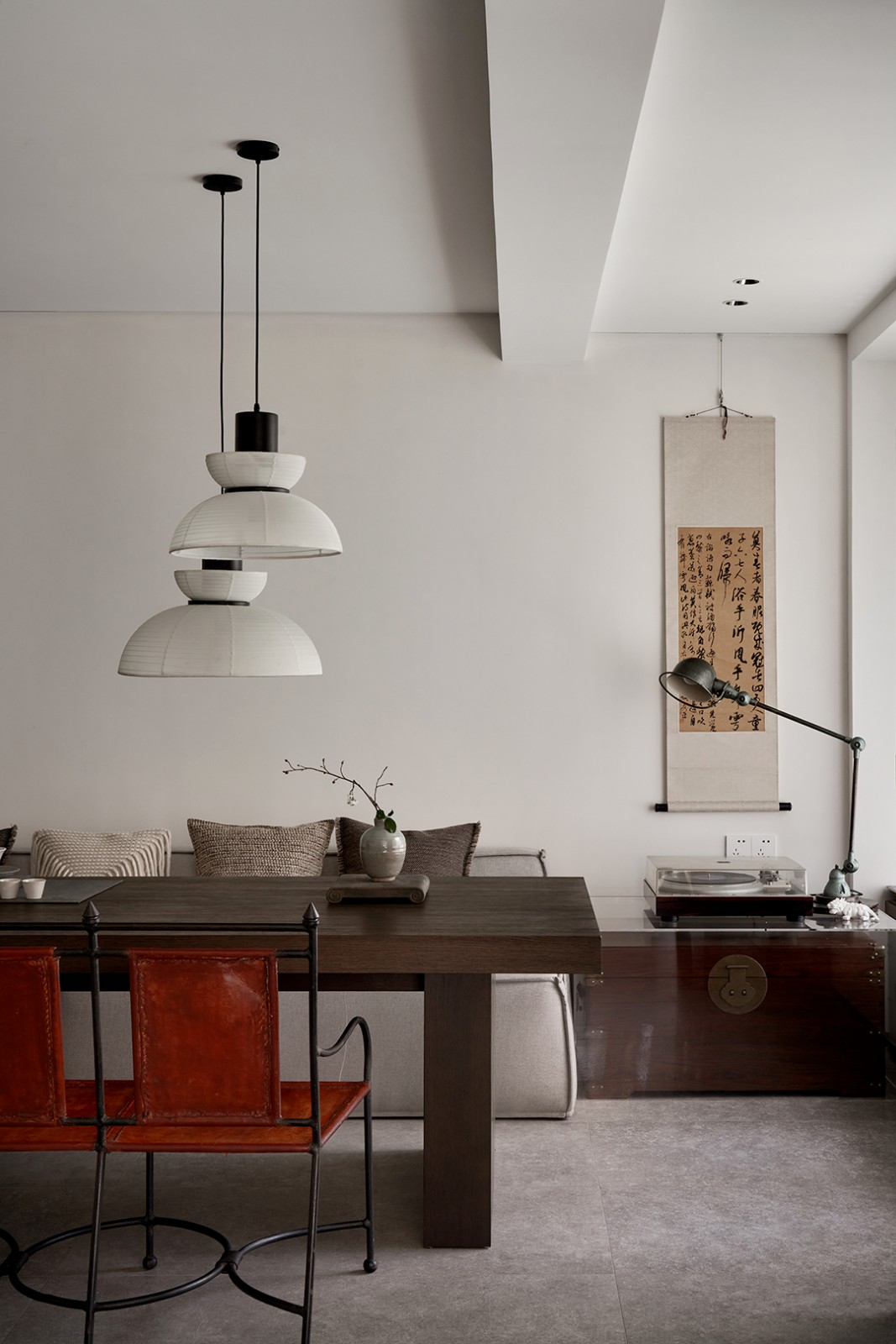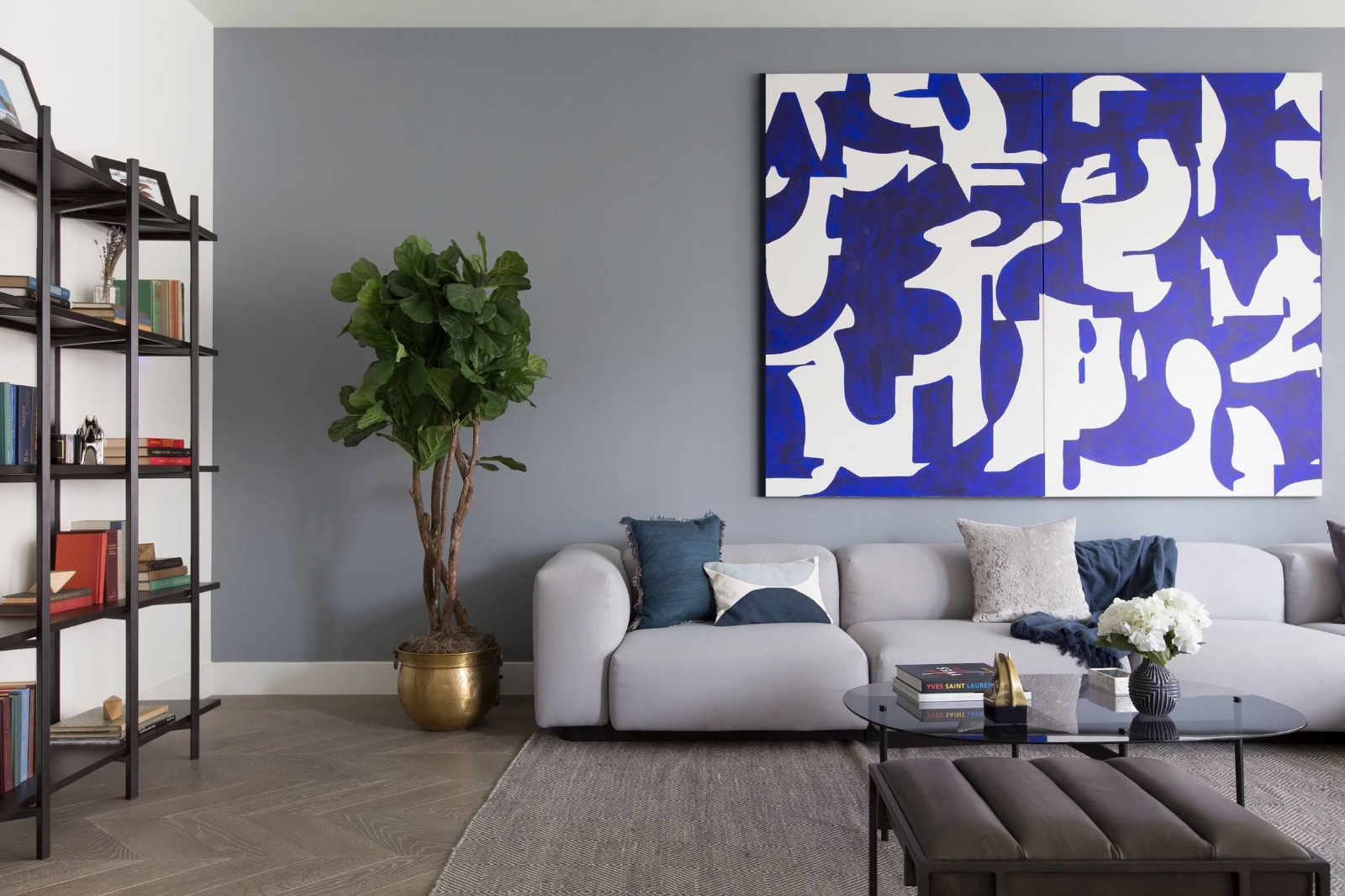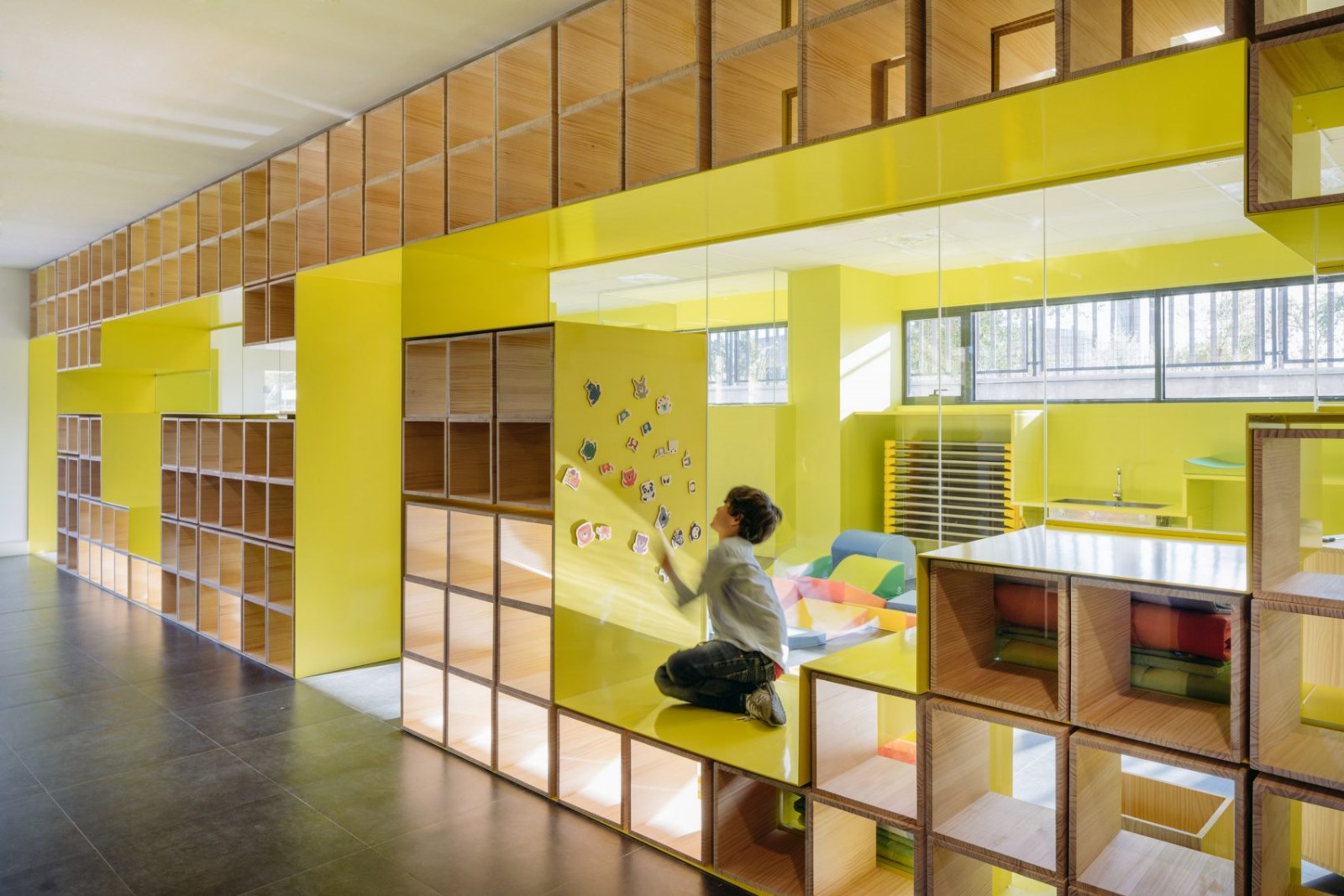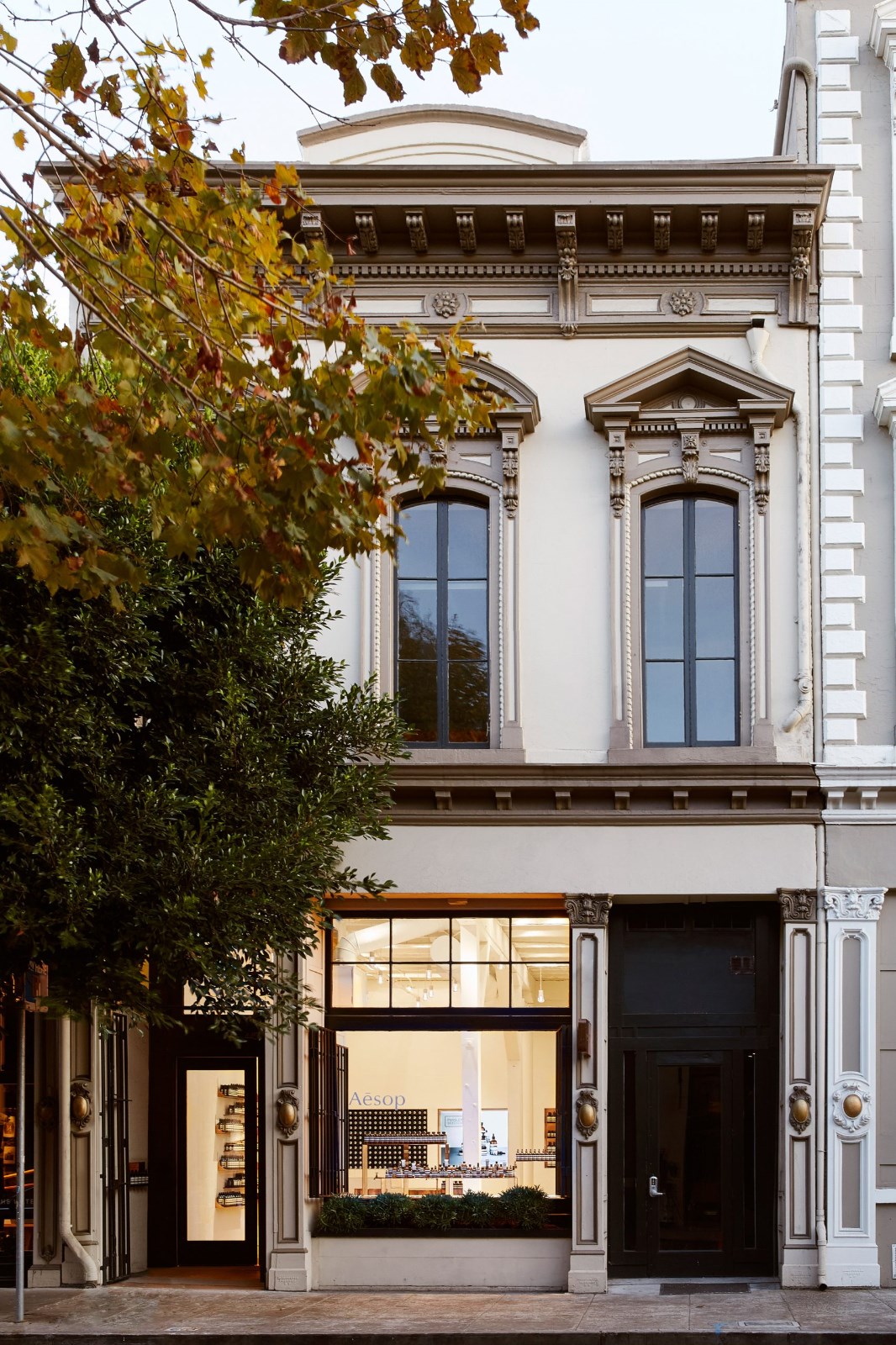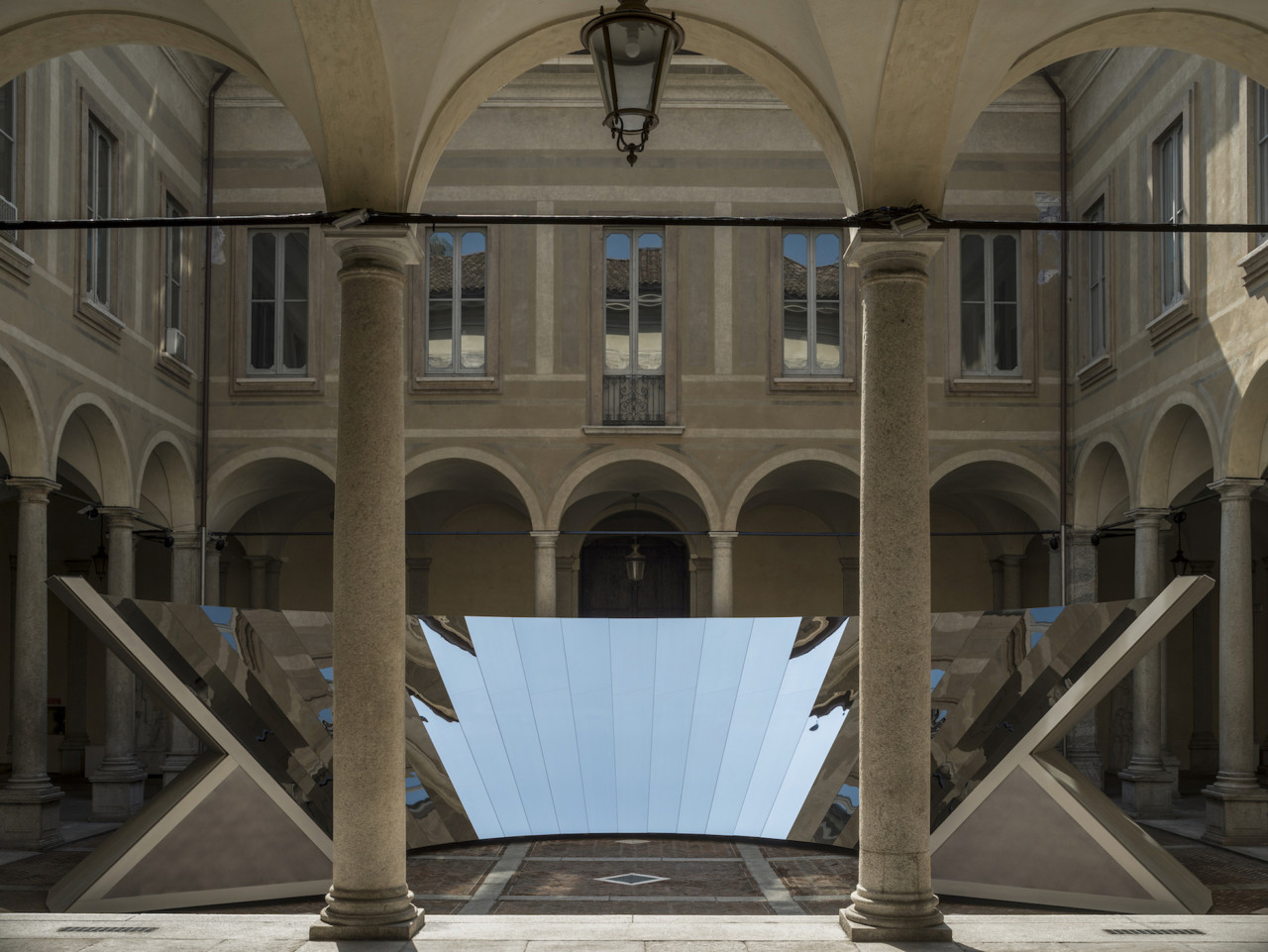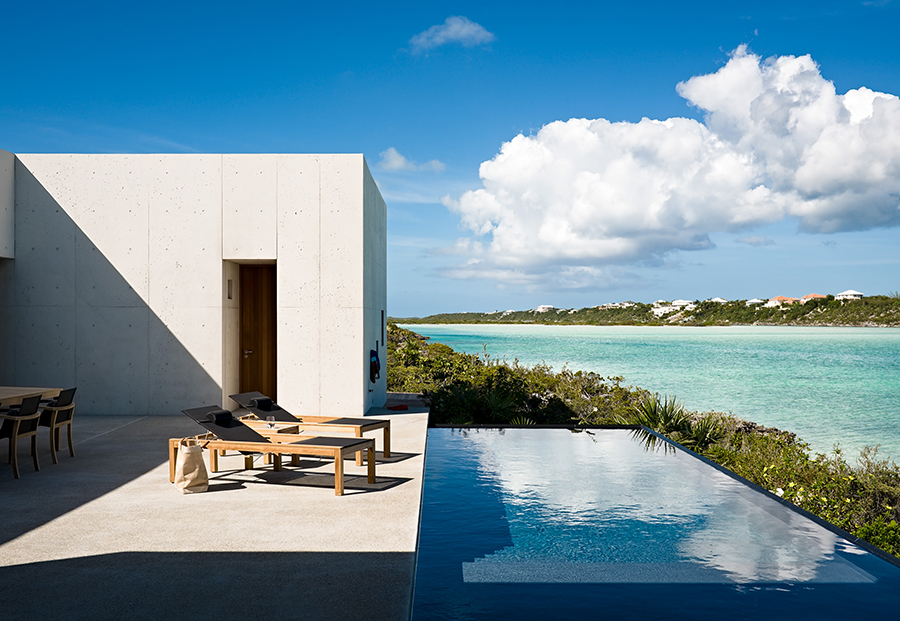Te Kaitaka Stevens Lawson Architects
2018-04-10 17:00
架构师提供的文本描述。TeKaitaka坐落在新西兰南岛万纳卡湖畔罗伊半岛的山丘中。它位于特瓦普努纳木/新西兰西南部世界遗产地区和有抱负的国家公园的边缘。这一地区以其巨大的山谷景观而闻名于世,这些山谷是由古老的冰川雕刻而成的,它解剖了高耸的山脉。这也是一个麦加户外休闲活动,包括徒步旅行,钓鱼,划船在夏天和滑雪在冬季。
Text description provided by the architects. Te Kaitaka is nestled amongst the tussock covered hills of Roy’s Peninsula on the shores of Lake Wanaka, in the South Island of New Zealand. It is situated on the edge of Te Wahipounamu / Southwest New Zealand World Heritage Area and Mt Aspiring National Park. The area is renowned for its dramatic landscape with large valleys, carved out by ancient glaciers, dissecting high mountain ranges. It is also a Mecca for outdoor leisure activities including hiking, fishing, and boating in summer and skiing in winter.
© Mark Smith
马克·史密斯


我们的方法是研究建筑语言与自然环境和当地建筑传统的对话。抽象的三角几何图形和折纸状褶皱和剪裁被用来创造一种与高山景观密切相关的雕塑形式。这是根据该地区当地木材的形式和结构来阐述的。
Our approach was to investigate an architectural language in conversation with the natural environment and local building traditions. Abstracted triangulated geometries and origami-like folds and cuts were employed to create a sculptural form that related strongly to the alpine landscape. This was articulated with reference to the forms and textures of the vernacular timber woolsheds of the area.
© Mark Smith
马克·史密斯


Floor Plans
平面图


© Mark Smith
马克·史密斯


地方规划规则要求建筑平台面积不超过25平方米。我们的设计过程从一张正方形的纸开始。它是倾斜的,创造了一个屋顶平面,反映了土地的斜坡,然后修剪,以适应起伏的地形,并创建庭院向东和西。屋面在角度上被切割,折叠起来形成天空光,边缘被折下来形成包围内部空间的墙壁。
Local planning rules required a building platform that was no greater than 25 meters square. Our design process started with a square piece of paper. It was tilted to create a roof plane that mirrored the slope of the land, then trimmed to fit the undulating landform and to create courtyards to the east and west. The roof plane was sliced on the angle and folded up to form sky-lights, the edges were folded down to form walls enclosing the space within.
© Mark Smith
马克·史密斯


在毛利人文化中,斗篷,Te Kaitaka,是庇护和养育的有力象征。一层天然的雪松皮遮住了原始的混凝土结构,类似于覆盖在岩石景观上的柞蚕。风化的伪装外观让位于洞穴般的内部,混凝土和石质提供了一种不受景观和极端地区气候影响的保护感。这是一个有趣但令人满意的扭转传统材料模式的混凝土外部和木材内部。
In Maori culture, the cloak, Te Kaitaka, is a potent symbol of shelter and nurture. A skin of natural cedar cloaks the raw concrete structure, analogous to the tussock draped over the rocky landscape. The weathered camouflage exterior gives way to a cave-like interior, the concrete and stone mass providing a sense of protection from the power of the landscape and the extreme regional climate. This is an intriguing but satisfying reversal of the orthodox material schema of concrete exterior and timber interior.
© Mark Smith
马克·史密斯


中心生活区包括一系列对角线联锁的空间,最终形成一个洞口,该孔被刻在上层,创造了一种连通感和空间流动性。冬日的阳光透过凸起的棱角分明的天窗和深邃的窗框穿透到太空深处,唤起了一种近乎灵性的气氛。屋顶的平面向下倾斜,形成了一个遮蔽的阳台空间,可以看到湖和山的景色。
The central living area comprises a series of diagonally interlocking spaces which culminate in a cavernous aperture which is carved through to the upper floor, creating a sense of connectedness and spatial fluidity. Shafts of winter sunlight penetrate deep into space through raised angular skylights and deep framed windows, evoking an almost spiritual atmosphere. The roof plane dips low, forming a sheltered verandah space, framing views to the lake and mountains.
© Mark Smith
马克·史密斯


建筑物的物质性有一种触觉和泥土的感觉,表现为质地的混凝土墙,粗糙的劈开的片岩地板,和带锯油的木材天花板。一种淡淡的雪松气味弥漫着整个空间。这座建筑被手工制作的细节所丰富,并以家具制造商的技巧和精准装配在一起。这个房子是我们的客户,他们的家人和朋友的避难所。虽然它的比例很大,表现得很戏剧化,但它也是一个私密和社交的家,有一种非正式的感觉和一种宁静的气氛。作为景观中的一个雕塑对象,蕴含着丰富的室内体验,这座房子唤起了一种深刻的场所感。
The materiality of the building has a tactility and earthy sensuality expressed by the textured concrete walls, rough-hewn schist floors, and bandsawn oiled timber ceilings. A subtle scent of cedar permeates the space. The building is enriched by handcrafted detailing and has been assembled with the skill and precision of a furniture maker. This house is a sanctuary for our clients, their family, and friends. Although generous in its proportions and theatrical in its expression it is also an intimate and sociable home with a sense of informality and an atmosphere of serenity. As a sculptural object within the landscape enfolding a rich interior experience, this house evokes a profound sense of place.
© Mark Smith
马克·史密斯














































Architects Stevens Lawson Architects
Location New Zealand
Lead Architects Nicholas Stevens, Gary Lawson
Area 589.0 m2
Project Year 2010
Photographs Mark Smith
Category Houses
Manufacturers Loading...















